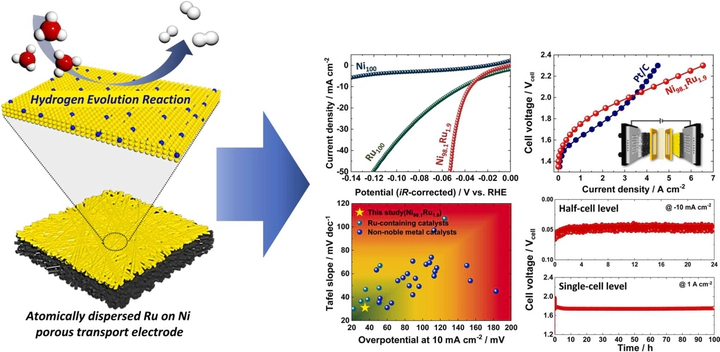Controlled Doping of Ultralow Amounts Ru on Ni Cathode for PEMWE: Experimental and Theoretical Elucidation of Enhanced Performance

Abstract
Proton exchange membrane water electrolysis (PEMWE) is an environmentally benign technology for large-scale hydrogen production. Despite many catalysts being developed to replace Pt, successful development of low-cost catalysts that meet the balance of performance and durability is limited. In this work, atomically dispersed Ru on Ni catalyst-integrated porous transport electrodes were fabricated by a simple electrodeposition. With a trace amount of Ru (< 0.05 mgRu·cm−2), the Ni98.1Ru1.9 cathode catalyst exhibited an overpotential of 35 mV at –10 mA·cm−2 with excellent stability. Density functional theory calculation revealed that the high performance was driven by optimized adsorption strength and improved mobility of hydrogen on the catalyst surface. The Ni98.1Ru1.9 electrode was further verified in a PEMWE cell and resulting performance (6.0 A·cm−2 at 2.25 Vcell) and stability (0.13 mV·h−1 decay rate at 1 A·cm−2) surpassed previously reported non-Pt and even Pt electrodes, demonstrating its readiness as an advanced cathode to replace Pt.